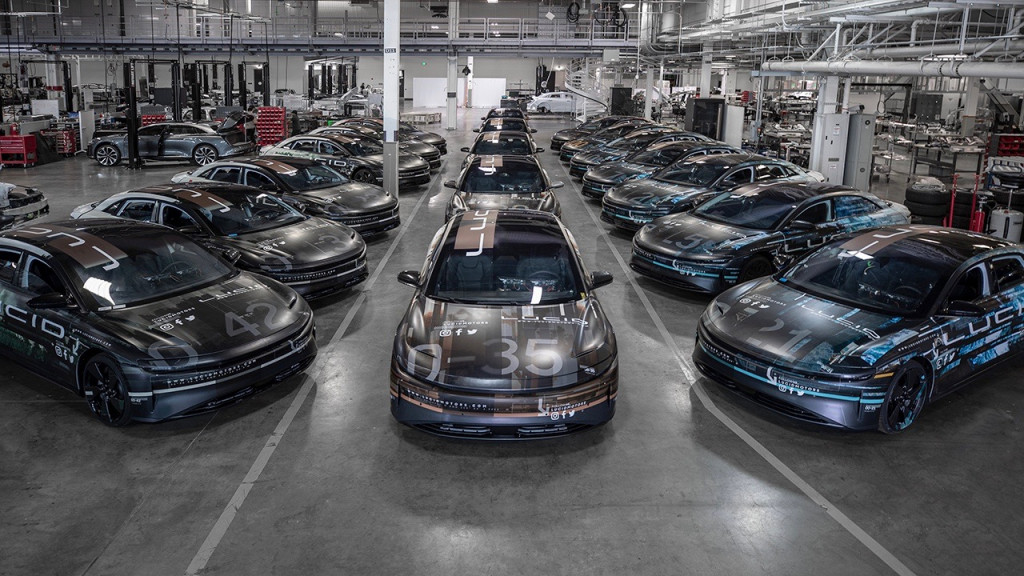Lucid Motors aims to take on Tesla not only with electric cars, but with driver-assist tech to rival Tesla's Autopilot and Full Self Driving systems.
The Lucid DreamDrive system will support 19 distinct features when it launches on the Air electric luxury car, the company said in a press release Tuesday. That includes traffic-sign recognition, a distracted/drowsy driver monitor, full-speed adaptive cruise control with lane centering, and and automatic parking function. Lucid said it will then add another eight features through over-the-air software updates.
A major difference between DreamDriver and Tesla's systems is that Lucid's system uses lidar. Tesla CEO Elon Musk has repeatedly said lidar is unnecessary, and claims cameras and radar are efficient not only for driver aids, but for autonomous driving. However, most companies developing self-driving cars use lidar alongside cameras and radar.
DreamDrive includes 32 sensors, including cameras, radar, and lidar. Lucid claims it's the first driver-assist system built on a high-speed Ethernet Ring, which gvies the steering, braking, and sensor systems "redundant independent power sources and communications paths, fail-operational actuators, and fault-tolerant computation," according to Lucid.

Lucid Air prototypes parked
Lucid said it worked with hardware suppliers Continental and Bosch, as well as mapping company Here, but that systems integration was done entirely in-house.
DreamDriver will debut on the Lucid Air sedan, which was unveiled in concept form in 2016. Lucid has said range-topping versions of the Air will boast 1,000 horsepower and a real-world range of 400 miles. In 2017, a prototype hit 235 mph on an Ohio test track.
Development work was delayed due to lack of funding, but a $1 billion investment from Saudi Arabia's sovereign wealth fund reignited the project. Lucid now plans to unveil the production version of the Air on Sept. 9. The car will be built at a new factory in Casa Grande, Arizona, with customer deliveries expected to start in 2021.